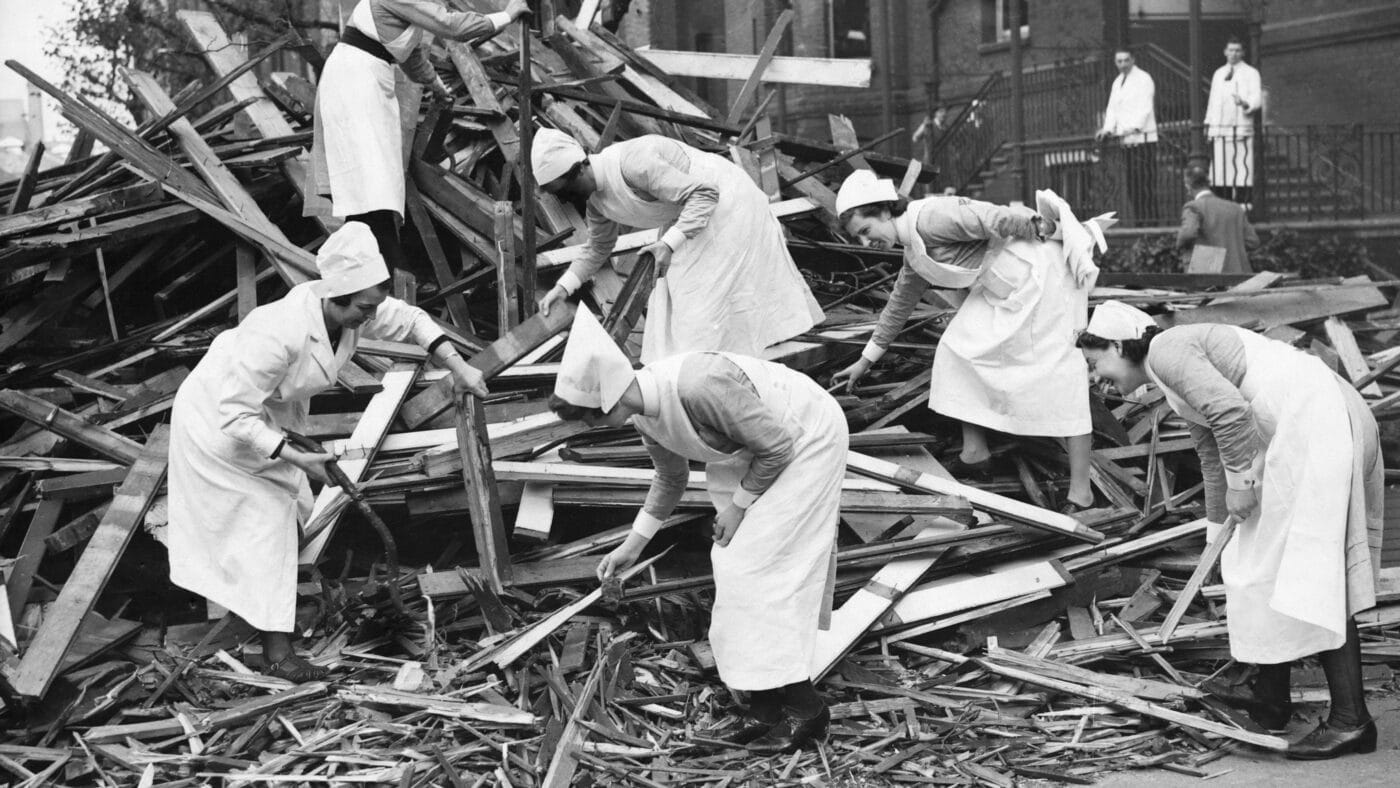Last weekend, I was back home in North Essex celebrating my Grandad’s 88th birthday. I reflected on what the Britain of his childhood looked like – a nation of grafters, shaped by hardship, who embodied the ‘Blitz spirit’. I am often reminded of a story told to me of him as a child extinguishing an incendiary bomb that had landed in our family-owned clothes shop, and I wonder how he now views the country he and so many others fought to defend.
Like many other Western societies, Britain today has seen great leaps in technology, finance and medicine. Yet despite these advances, we have seen Britain lose the parts of itself that gave us this success. Few key markers of post-war Britain remain. Our trust in leaders, our self-sufficiency and our large, caring communities are all being eroded. There is an irony in these qualities declining just as Brits look to the state to do increasingly more for them.
When it is cold, people demand heating rebates. When people have children, they demand ever-increasing child support. When train fares are too expensive, people demand nationalisation. Each problem becomes a new political priority, to which the answer is always more government intervention. But it has consequences.
The Institute of Economic Affairs’ Callum Price recently pointed out that ‘by the end of the parliament, almost 50% of day-to-day government spending will be on the NHS’. This staggering figure shows both how inefficiently run and politically deified our health service has become to justify such exorbitant sums being spent on it.
Of course, in most developed countries, the state is expected to provide healthcare, but the NHS, the UK’s largest employer, now consumes so much of our public budget that it’s squeezing out everything else. And that’s just the tip of the iceberg. There are many more unnecessary spending policies that only make sense when you take into account the modern-day entitlement of the British voter. Low-paid British families are now entitled to free school breakfast clubs, as well as child benefits and cost of living payments.
Being a small statist, I am of the opinion that it is you, not the state, who should bring up, support and feed your children. What started out as a guardrail is rapidly deteriorating into a life-support system.
Two generations ago, Britain’s support system relied heavily on the work of communities, charities and the Church, looking inward and keeping people tightly knit. Today, the welfare state has expanded to most aspects of our lives, with people looking upward for help from the taxpayer, rather than their local community. Big Brother mercifully watches over you, while taxes and borrowing soar.
This system has tried to act as a safety net where no one feels on their own, but in reality, it has instead contributed to community decay. While families previously looked to each other for support and favours, now they ask the Government for help, keeping them beholden to an ever-expanding welfare state, leaving them only ever asking for more. If the British taxpayer asked government for less instead, maybe we wouldn’t be in a situation where a majority of taxpayers take more out of the system than they put in.
As community in Britain withers, government is taking its place. Countries with non-governmental support systems like Poland do not have such issues, as each family unit takes care of one another, demanding little from the state.
In Britain, however, each new government handout is immediately seen as a right that can never be removed. In expanding schemes such as free school meals, the state makes parents ever less responsible for the upbringing of their children, incentivising them to expect the state to pick up ever more of the slack. This overburdening of the state has far-reaching economic effects.
Without making tough but necessary decisions, Britain will continue to expand its national debt while removing any way of getting itself out of the hole – all as it attempts to do more and more for society. The British people must take the medicine: for too long, the state has provided us with too many generous and unsustainable benefits. Managing one’s own finances and family without crying to the nanny state is the first step on the road to recovery.
This remains just as true for the elderly, who have been treated to winter fuel allowances and the generous triple lock without regard to the fact that they ought to have spent most of their working lives saving for retirement. Removing the triple lock on pensions remains a political impossibility, despite state pensions estimated to cost £145.6 billion this year alone.
The fundamental question we need to ask ourselves is whether it should really be the state’s responsibility to rectify everyone’s life difficulties. As much as we all would like some benevolent force to come into our lives and solve all of our problems, thinking that this should be the state is a dangerous fantasy.
Adults make tough decisions, accept risk and take responsibility. Children cry for help.
It’s time Britain grew up.
Click here to subscribe to our daily briefing – the best pieces from CapX and across the web.
CapX depends on the generosity of its readers. If you value what we do, please consider making a donation.


